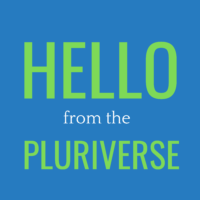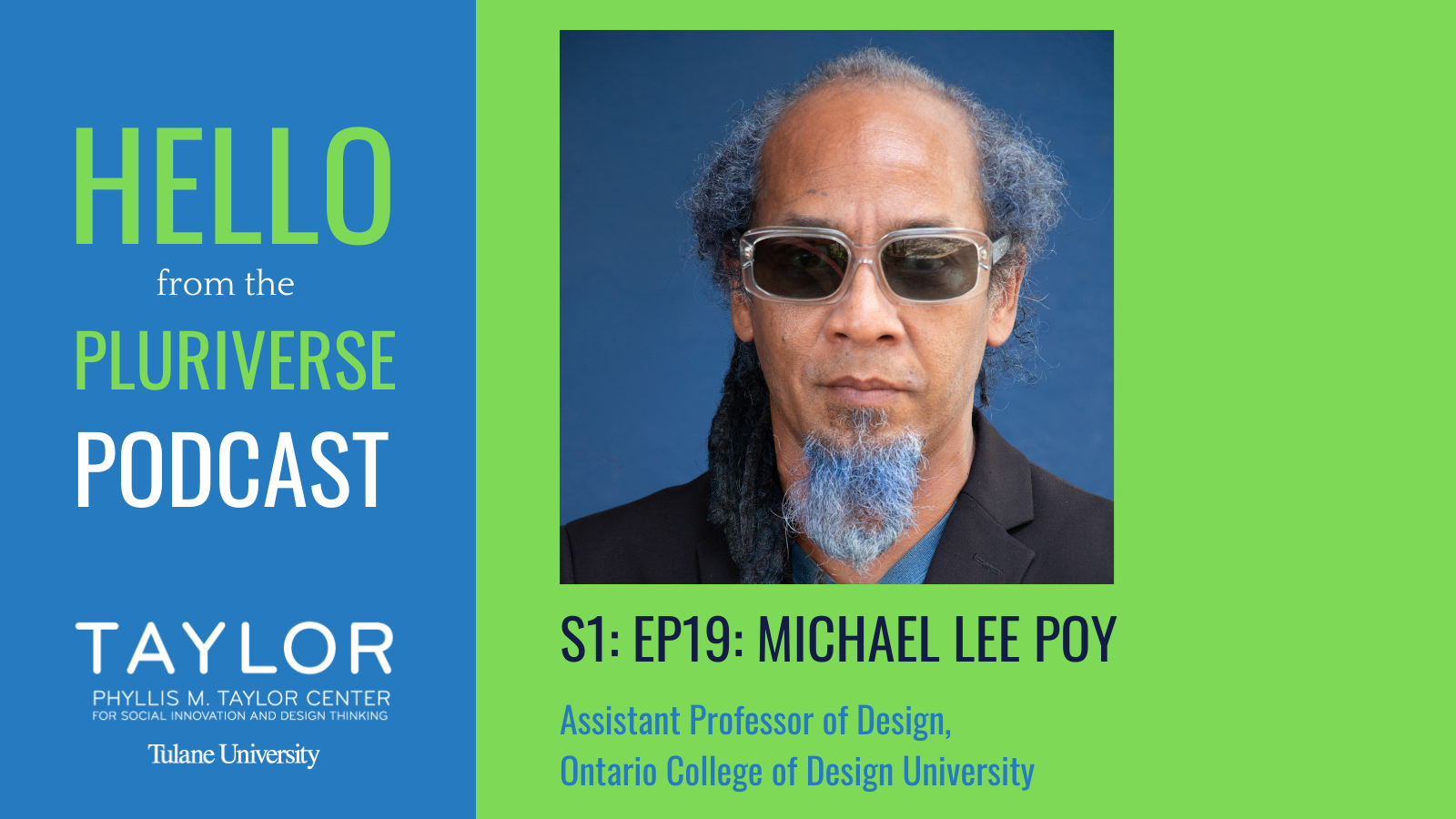Pluriverse Publication Chapter: Michael Lee Poy
Written by Wesal Abualkhair and edited by Natalie Hudanick
Download a PDF Layout of the Michael Lee Poy chapter of the Pluriverse Publication.
Michael Lee Poy is an architect born in Canada and has been working in Trinidad for the past 14 years. His parents are from Trinidad, and his heritage includes Chinese, Black, Spanish and Scottish. Michael started his college education in 1980 and continued onto architectural school in 1984. He defines himself as an architect and a designer, and views the design thinking process as part of the architectural process, which he adopted to teach non design educated people the design process. Michael explained that showing people the relentless testing of the design process is “in a way to find not necessarily an answer, but the question to a potentially good answer”, he continued “unless you arrive at the right question, you’re not going to get the right answer”.
Michael started to really practice design when he moved to Trinidad 14 years ago, but he described himself as an artist when he was in New York making furniture. When asked if he was practicing design in New York right now, how would that be different than what he is doing in Trinidad, Michael said that he would use his experience from Trinidad to approach design differently in New York to differentiate himself from the rest, bringing something new to the table, that he would be “selling my Trinidad–i–ness to New Yorkers”.
One of Michael’s current projects has been working with the University of the West Indies for their 70th anniversary. With this project, his clients are the professors at the university, who want to have a museum and an exhibit for this anniversary but are facing the challenge of funding these two things. To get to the best solution, Michael kept meeting with the professors and had them go through the process of design by having them ask themselves what they really want in order to get the right question, and ultimately to get to the right solution. With Michael’s training in architecture, the design process has become ingrained in his mind and it has now become a way of thinking for him to solve problems.
Michael says that as a designer, it’s about the conversation he has with his clients, and how he changes the language he uses when he discusses their needs. For example, Michael listens to his clients’ stories and know their daily schedule just to design a bathroom. Knowing those stories helps with the empathy part of Michael’s design process because it’s “when you scratch the surface a little bit, you’re opened up to something completely different. And the solution will definitely not be the same. So, empathy is critically important”.
Michael explained how identity and place affect his process by giving an example of Vice President Joe Biden, who said that President Barack Obama has no entitlements. What Vice President Biden meant is that because President Obama is from so many different places, “with the pluriverse state of mind, you belong everywhere and nowhere kind of thing”. Michael went on to say that for him each place he has lived in, New York, New Haven and Canada, have affected him and his design process. Its helped him when he had a client or a challenge in which he needed to look at from many perspectives and really ask the question; “it’s not about being American or Canadian or Trinidadian, but what’s the universal problem here, is that love, is that finance, etc.”.
When asked about how his design process is different from other problem-solving processes, Michael explained his process as an architect is solution based, and the difficult part for people is to get to the prototyping and testing phase of the design process. He mentioned the reason for this difficulty is because people didn’t see the end results of going through this process like he did as a design practitioner, where he did see how this prototyping and testing helped the final results. Michael attributed his ability to see the end results was due to his experience of seeing the end results on a different level so many times, and his advice is for people “to find the question that will yield the best solution”.
When Michael uses the design process with his students, he tells them to use the design process again and again, just like the scientific process, and record it every time. This helps the students to create their own data and use it later as a reference when they work on more projects later on, and he added “it just creates a bank of wisdom and knowledge, for anyone to use and to solve problems for yourself and also teach it”.
Michael mentioned that when he met with Lesley-Ann Noel, who is the creator of this podcast series, and they discussed the design thinking process in Trinidad and Tobago, they found it to be elementary and still in its infancy phase, with not many designers or architects in that area. The reasoning for this was because no one has done it yet and there are no workshops there to practice this process in order to make change in Trinidad and Tobago to make life better and help the environment.
Michael talked about decolonizing design in Trinidad, and that it is critical to start doing that, as it will take years for Trinidad to change the colonizing effect that’s existed for hundreds of years, and that has impacted every aspect. The importance of the decolonization process is “to understand the indigenous systems or processes in order to use them and perhaps learn from them and try and make the place better because there’s a reason they happened in a certain place and why they’ve survived. So why not use them?”.
When asked what his advice would be for non-designers who want to learn and apply the tools for design or design thinking, Michael had an answer for academic and non-academic people. His advice for academic people was to learn the design tools by actually subscribing to a design PhD list. To receive emails daily about design can work to influence our way of thinking and broaden our minds about how design is indeed in every aspect of our lives. His advice for non-academic people was that he would run them through the basic 5 steps for the design process. Then, if they want to explore it further, they can take some workshops and try to teach it to someone else to practice that way of thinking continuously.
Michael concluded with a beautiful, profound point. Every person is creative somehow, and that if you tap into your creativity in other aspects in your life, like cooking or ceramics, it will feed the lateral, creative thinking in your mind, and it will help you get to the place where you’re most inspired. Once you get to that place, you can tap into it and you can always expand on being creative in general and in your discipline and do great things!
- Instagram: @hellopluriverse
- Twitter: @hellopluriverse
- Email: taylor@tulane.edu
- Subscribe to our newsletter
The Hello from the Pluriverse Podcast aims to open up and create a space to have conservations about the pluriversality in design.
This podcast is a project of the Design Thinking for Social Innovation Program at the Phyllis M. Taylor Center for Social Innovation and Design Thinking at Tulane University.
Executive Producer: Lesley-Ann Noel, Ph.D
Sound editing
- Max Esperance
- Lavonte Lucas: xn--vonni-fsa.com, Instagram: @vonnieradass, Twitter: @vonnieradass
Hello from the Pluriverse 2020-2021 Student Team
- Max Esperance – Podcast lead
- Natalie Hudanick and Michaeline Anglemire – Editors
- Tiwani Oseni – Communications
Hello from the Pluriverse 2019-2020 Student Team

